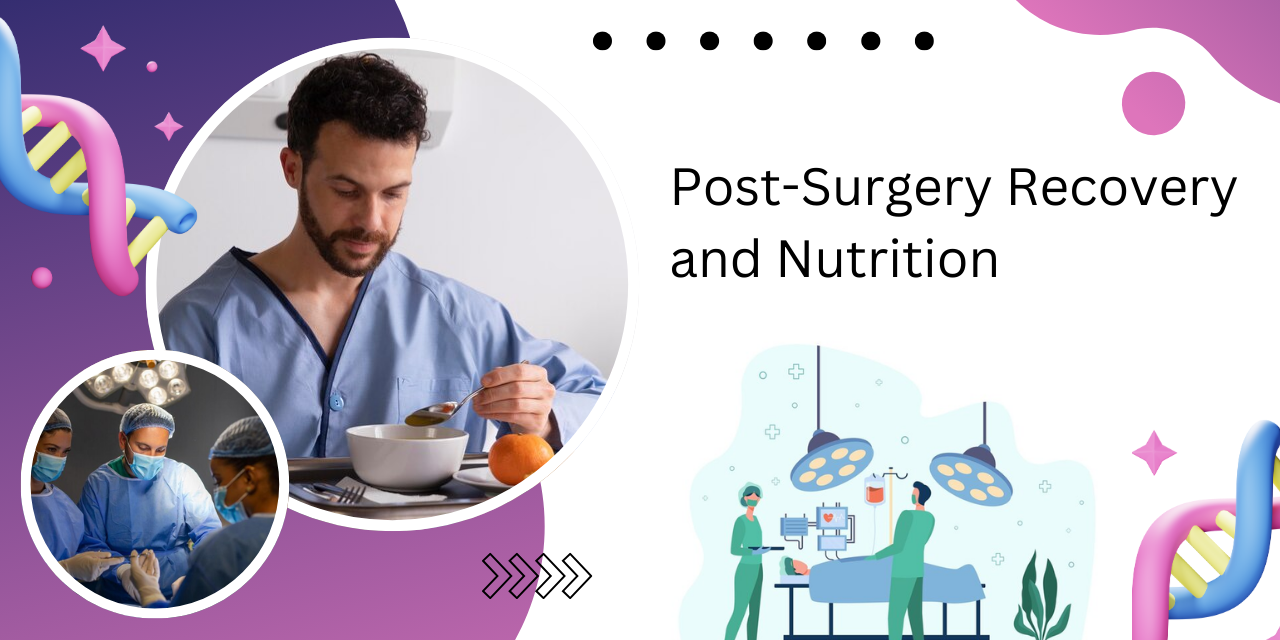Recovering from general surgery is a multifaceted process that significantly benefits from proper nutrition. Adequate nutrition not only promotes healing but also helps prevent complications, reduces recovery time, and improves overall outcomes. This article explores the essential role of nutrition in the recovery process after general surgery, particularly for patients in Patiala.
Importance of Nutrition Post-Surgery
Wound Healing: Proper nutrition provides the body with the necessary nutrients to repair tissues and heal wounds effectively. Proteins, vitamins (especially Vitamin C), and minerals like zinc are crucial for collagen formation and tissue repair.
Immune Function: A well-balanced diet strengthens the immune system, which is vital for preventing infections—a common concern after surgery. Nutrients such as vitamins A, C, D, and E, along with zinc and selenium, play a significant role in enhancing immune responses.
Energy Levels: Surgery can be physically taxing, leading to fatigue. Carbohydrates are essential for providing energy during recovery. Including whole grains, fruits, and vegetables ensures a steady supply of energy to support the healing process.
Preventing Complications: Malnutrition can lead to complications such as delayed wound healing, increased risk of infections, and longer hospital stays. Ensuring adequate intake of nutrients can mitigate these risks significantly.
Key Nutrients for Recovery
➽ Proteins: Essential for tissue repair and muscle maintenance. Sources include lean meats, fish, eggs, dairy products, legumes, and nuts.
➽ Carbohydrates: Provide energy needed for recovery. Focus on complex carbohydrates like whole grains, fruits, and vegetables.
➽ Fats: Healthy fats (e.g., avocados, nuts, olive oil) support cell function and hormone production.
➽ Vitamins and Minerals:
- Vitamin C: Aids in collagen synthesis and boosts immune function.
- Vitamin A: Important for skin health and immune response.
- Zinc: Plays a role in wound healing and immune function.
Hydration
Staying hydrated is equally important during recovery. Water aids in digestion, nutrient absorption, and helps flush out toxins from the body. Patients should aim to drink plenty of fluids unless otherwise directed by their healthcare provider.
Common Nutritional Challenges After General Surgery
After surgery, patients may encounter various challenges that impact their ability to consume adequate nutrition:
- Loss of Appetite: It’s common for patients to experience decreased appetite after surgery due to pain, medications, or anxiety. Small, frequent meals can help overcome this challenge.
- Nausea and Digestive Issues: Some patients may experience nausea or digestive discomfort after surgery. Opting for bland foods, such as bananas, rice, and toast, can be beneficial. Gradually introducing more diverse foods can help improve tolerance.
- Difficulty Swallowing: Patients who undergo throat or abdominal surgeries may face difficulties in swallowing. Soft foods and pureed meals can be easier to consume and digest.
- Dietary Restrictions: Certain surgeries may require dietary modifications, such as low-fat diets after gallbladder surgery. Understanding these restrictions is essential for effective recovery.
Conclusion
Nutrition plays a pivotal role in the recovery process after General Surgery in Patiala. By prioritizing a balanced diet rich in proteins, vitamins, and minerals, patients can enhance their healing and regain strength more effectively. Consulting healthcare professionals, including registered dietitians, can further support individuals on their recovery journeyFor patients in need of general surgery, Dr. Balwant Singh at Deep Hospital provides exceptional surgical care and nutritional guidance. For inquiries or to schedule an appointment, please contact Us at +911752282980.

